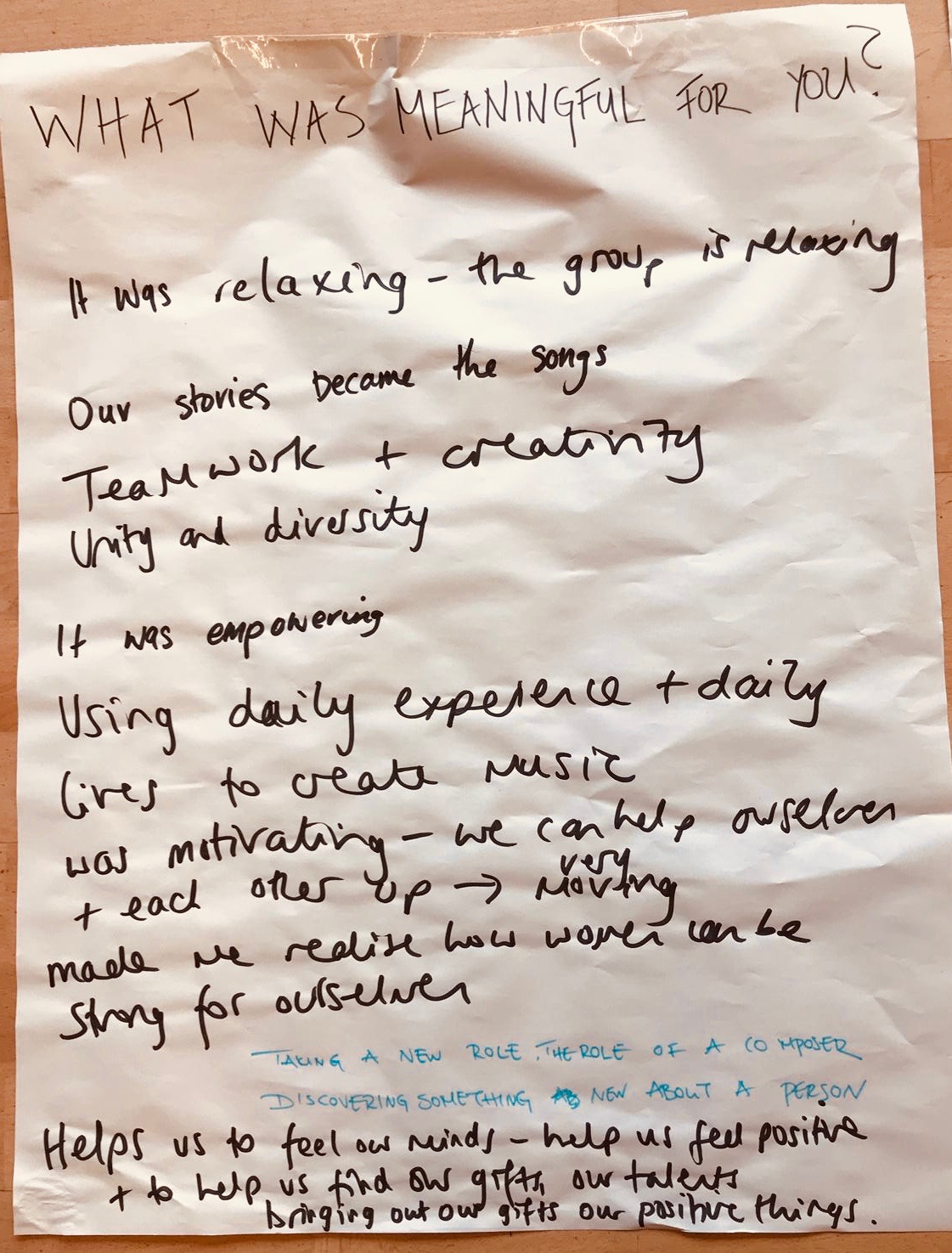Words/ Reseach
We truly belive in our work - in the stories, the voices and the impact. We are lucky that others feel the same and have taken the time to write reflections and research in response to our work.

An extract from an up-coming research on the impact of our work, which is currently under peer review for an international journal.
In the case of the workshop in Athens, the facilitators made a bold proposition in terms of repertory, and in this they appear to have come full circle with respect to the original objectives of community-music activism. The Breakfast Club quartet adopted a critical stance towards the traditional dictates of European culture and, in place of a ‘cultural introduction’ to the highlights of the canon, they chose a repertory that challenged the norms of this canon while also being a part of it. The medititative, electronic pieces and the pieces belonging to the oral tradition, composed by Pauline Oliveros and Meredith Monk, are excellent examples of parts of the canon that allow for experimentation, introspection, cultural introduction, and meaningful contributions by the participants. Moreover, the process of local musicians and non- musicians training in different sessions before coming together in a joint session enhances intercultural communication and strengthens the musical outcome. By combining a complex repertory with contributions from local, trained musicians, the facilitators used community music to achieve two important functions: first, they introduced a group of migrants and refugees to a category of Western art music, while being mindful of the global influences on the Western canon itself, in a way that allowed them to participate through their own means (texts or poems); second, they discussed this form of Western art music and transformed it. In this way interaction was achieved through an organic process that allowed all participants to possess equal rights to the music and the culture in which they were sharing.
Reflections from the Women for Refugee Women
“I know that I need to raise my voice - I am proud of myself.”

An extract from Young Artists Speak Out by writer Peter Renshaw. This testimony from Detta Danford explores arts, refugees and migrants through our work at the Melissa Network.
It is into this atmosphere - of womanhood - that is not only supported, but also celebrated, confident, embodied and active that we came to the centre every day in the morning and the evenings to run sessions. The women who joined the project came mainly from the Middle East and North Africa, including Afghanistan, Iraq and Libya. Some were older women, others teenagers and young adults. Often our sessions would start with a small group and would then expand to include anyone who walked past and heard the singing and music. Over five days we created a programme of music that included song and poetry in Arabic, Persian and English alongside instrumental accompaniments and new music inspired by the poetry of Audre Lorde and Maya Angelou and by Pauline Oliveros’ extraordinary work, ‘Bye Bye Butterfly’. We performed all of this in the central communal space at Melissa to family, friends, staff and women from the centre. It was a wonderful, moving and joyful event and one in which, as Evi described in a recent conversation, she was able to feel present in every moment.
For me, this project has been incredibly valuable and important, not only as a musician but as a mother, a woman and as a human being. The project created the kind of space in which I felt fully present as a mother and as a musician and in terms of the work and content of the project, it allowed me to actively discuss and explore some of my social and political concerns through my artistic practice and within a context that felt genuinely experimental and exploratory. To be surrounded by women throughout the project reminded me of the particular qualities of listening, sharing, knowing and experiencing that are so important to me and in which it is rare to be so fully immersed. The energy and activity that arises from this is for me, visceral and enduring. As a new mother, this project overwhelmed me and enabled me to see the challenges I’d been facing in managing work and parenting in another light. To be able to come to the centre with Wren and Jo (my partner), to sit in the workshops with Wren, alongside other mothers and their children, and to be able to play, to lead and to fully contribute to the work was amazing to say the least - moving, eye-opening and affirming. To enjoy leading a warm-up for example while the other women in the group held Wren, to sing songs with Wren in my arms, to know that I could ‘be’ these two previously seemingly opposing roles (mother and ‘worker’) was wonderful. And to also understand that, similar to the ethos of Breakfast Club, to hold and embody both of these roles didn’t have to make you any less of a mother or less of a musician; in fact, it could actually bring more to the work in terms of connection and meaning. In this project, this feeling of embodiment was so strong and so vital - I was doing it and not just talking about it or imagining it! As Evi put it in our recent conversations, what we experienced there felt closer to our own lives and to our own selves. We were making our place and our space the way we wanted it to look, feel and sound.